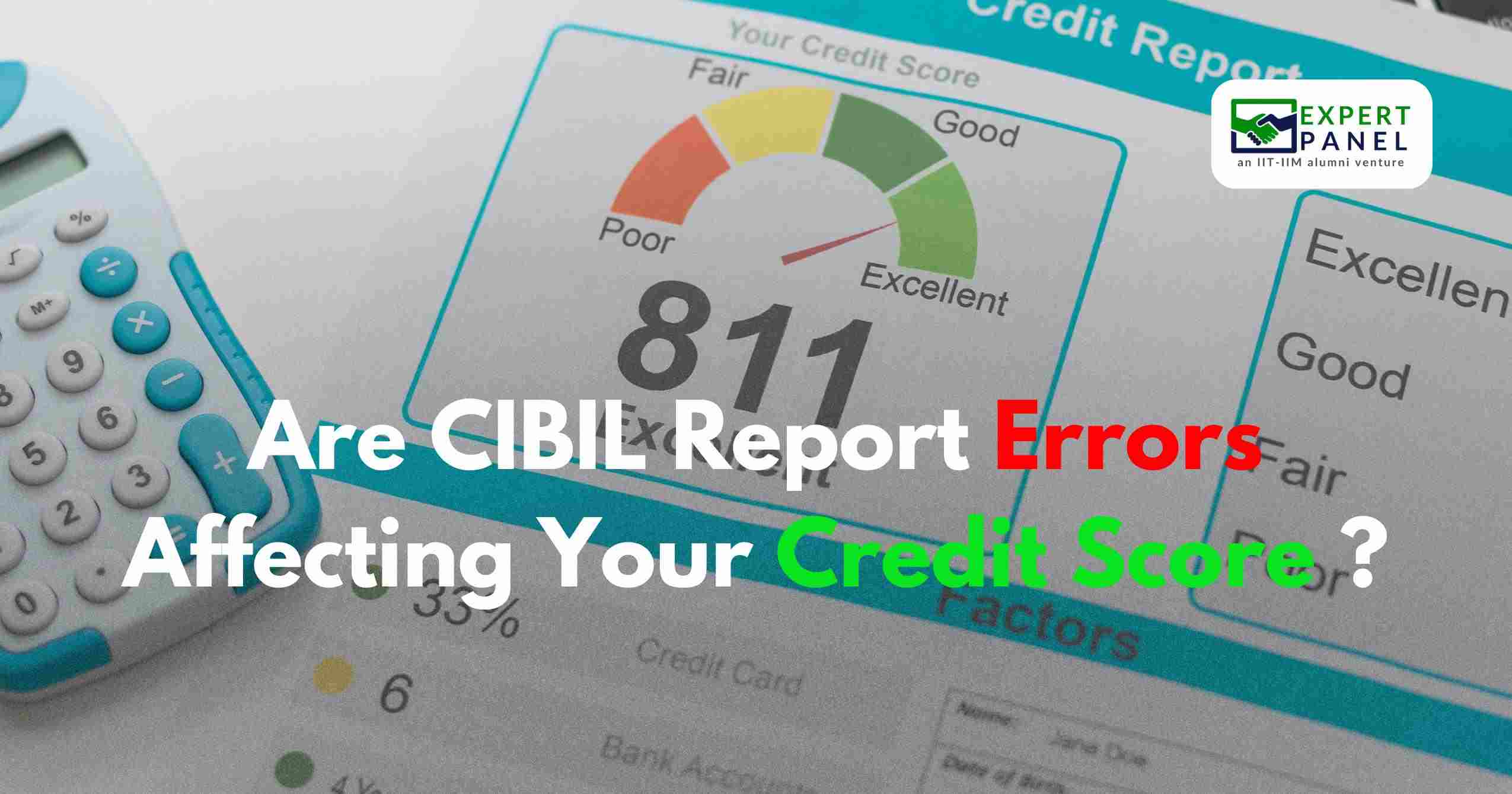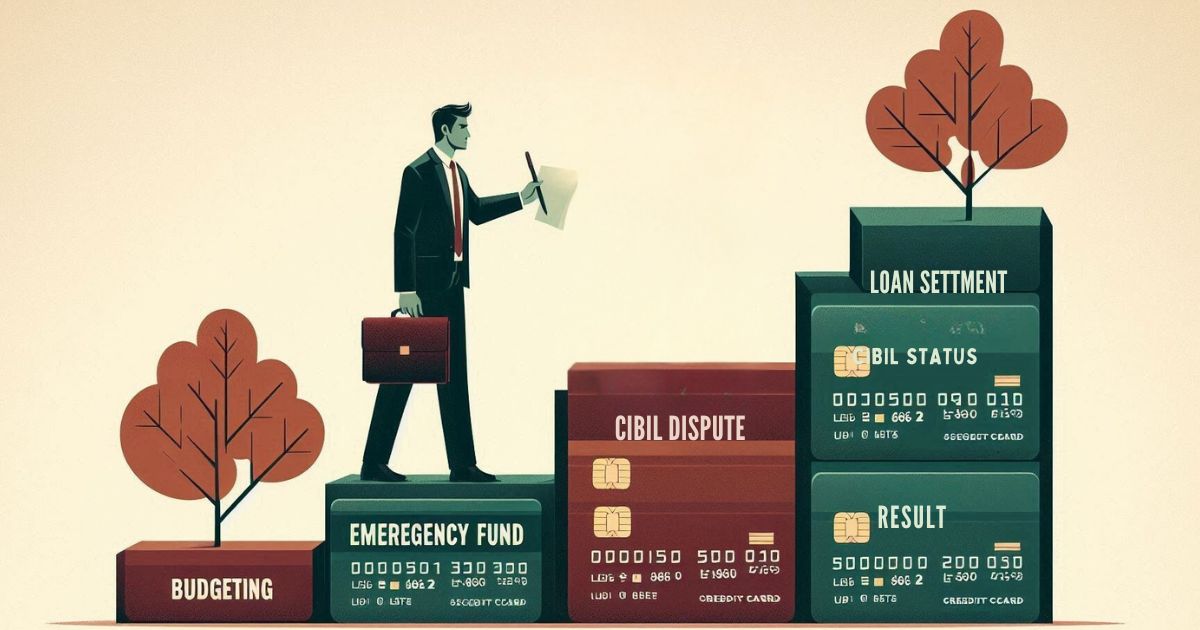· CIBIL Score · 4 min read
Are CIBIL Report Errors Affecting Your Credit Score?
Learn how errors in your CIBIL report can affect your credit score, loan approvals, and interest rates, and what steps to take for correction.

In today’s credit-driven world, your CIBIL score can make or break your financial dreams. But what happens when this crucial number is based on incorrect information? Many people have found themselves in a frustrating situation where errors in their CIBIL report have led to loan rejections or unfavorable credit terms. Let’s dive into this important issue and explore how it affects your chances for future financial support and what you can do about it.
Why Should You Care About Your CIBIL Report?
Your CIBIL report is like your financial report card. It tells lenders how responsible you’ve been with credit in the past. But just like a school report card, mistakes can happen. These errors can paint an inaccurate picture of your creditworthiness, potentially costing you opportunities and money.
What Kind of Errors Can Creep into Your CIBIL Report?
Mistakes in your CIBIL report come in various forms. Some common errors include wrong personal details like name, address, or date of birth. You might also find incorrect account information, such as wrong balances or closed accounts shown as open. Sometimes, payments you made on time might be marked as late. In more serious cases, you might even find accounts that don’t belong to you appearing on your report. These might seem like small issues, but they can have a big impact on your credit score and your ability to get loans or credit cards.
How Do These Errors Affect Your Financial Life?
Imagine saving up for years to buy your dream home, only to have your mortgage application rejected because of a mistake in your CIBIL report. Or picture being offered a higher interest rate on a car loan because your report incorrectly shows missed payments. These scenarios are all too real for many people. Errors in your CIBIL report can lead to loan and credit card application rejections, higher interest rates on loans, and even difficulty renting an apartment or getting a job, as some employers check credit reports. The impact of these errors can be far-reaching and significantly affect your financial well-being.
How Often Should You Check Your CIBIL Report?
Given the potential consequences, it’s crucial to keep an eye on your CIBIL report. But how often should you check it? Experts recommend reviewing your report at least once a month. This regular check can help you spot and address errors quickly before they cause problems. By making this a habit, you can ensure that your credit report always accurately reflects your financial behavior.
What Steps Can You Take to Correct Errors in Your CIBIL Report?
If you find an error in your report, don’t panic. There’s a process to get it fixed. Start by downloading your CIBIL report and carefully reviewing it. If you spot an error, gather evidence to support your claim. This might include bank statements, payment receipts, or correspondence with lenders. Next, fill out the online CIBIL dispute resolution form.
After submitting the form, you’ll need to wait for CIBIL to verify your claim, which can take up to 30 days. Once the process is complete, make sure to check your updated report to ensure the corrections have been made. Remember, this process is free, so don’t fall for scams asking you to pay for dispute resolution.
How Can You Prevent Future Errors in Your CIBIL Report?
While you can’t control all the information that goes into your CIBIL report, you can take steps to minimize errors. Always pay your bills on time, as this is one of the most important factors in your credit score. Keep track of your credit accounts and their status, so you can quickly spot any discrepancies.
If you change your address or other personal details, make sure to inform your lenders promptly. Lastly, be vigilant about identity theft, which can lead to fraudulent accounts in your name. By staying proactive, you can reduce the chances of errors appearing in your report.
Where Can You Learn More About Managing Your Credit?
In today’s digital age, financial literacy is just a click away. While it’s important to be cautious about online information, there are reliable sources where you can learn more about credit management. Official websites of financial regulators often provide trustworthy information and guidelines.
Reputable financial news websites can keep you updated on the latest trends and best practices in credit management. Many recognized educational institutions offer online courses on personal finance and credit management. You can also find webinars and podcasts by certified financial experts that provide valuable insights. Remember to cross-check information and be wary of advice that sounds too good to be true.
Conclusion
Your CIBIL report plays a crucial role in your financial life, affecting everything from loan approvals to interest rates. By staying vigilant, regularly checking your report, and promptly addressing any errors, you can ensure that your credit report accurately reflects your financial responsibility.


 (Final) BEYOND INTEREST RATES_ HIDDEN FACTORS AFFECTING YOUR LOAN APPROVAL.DOOT9T6V.jpg)
